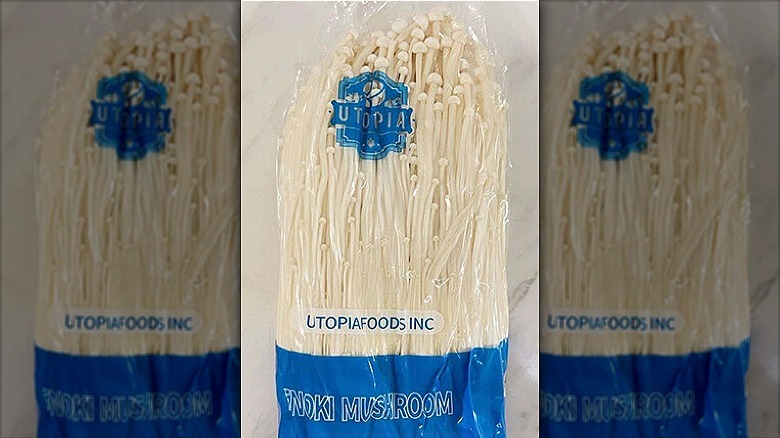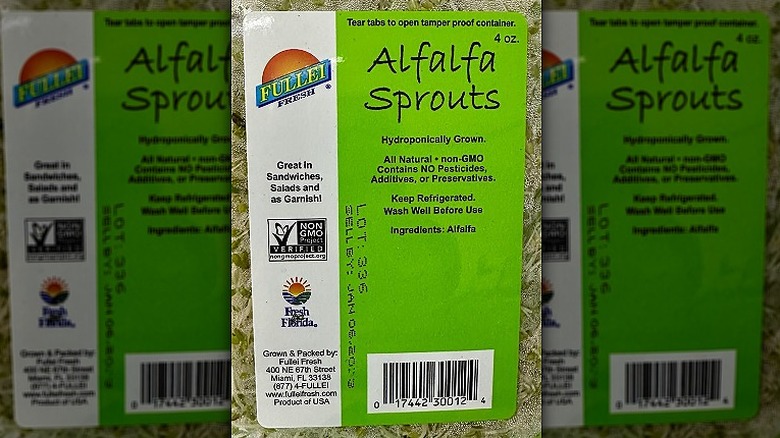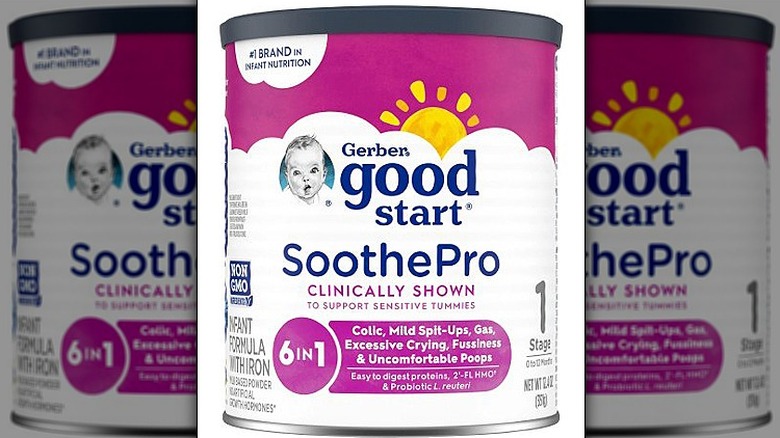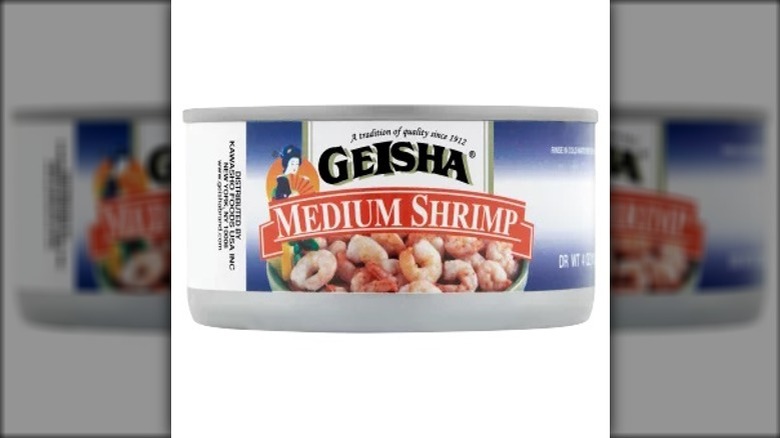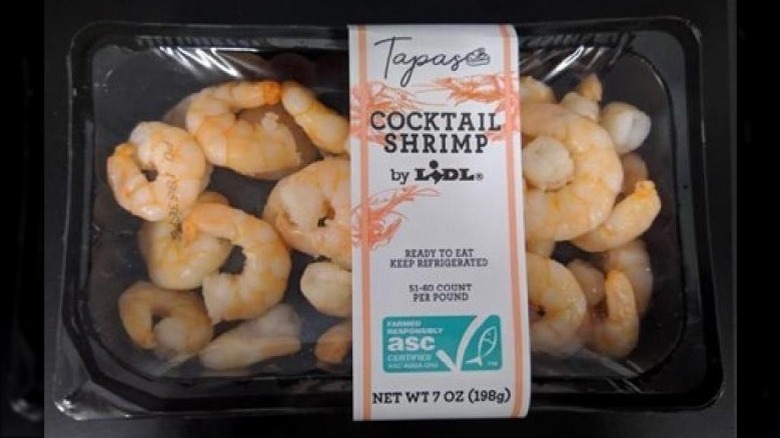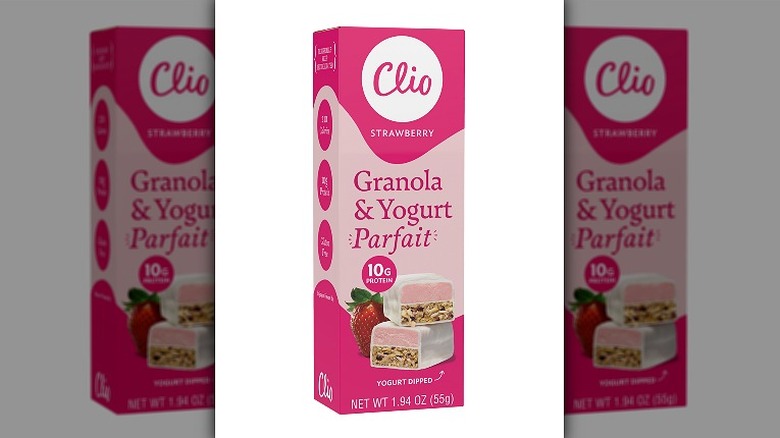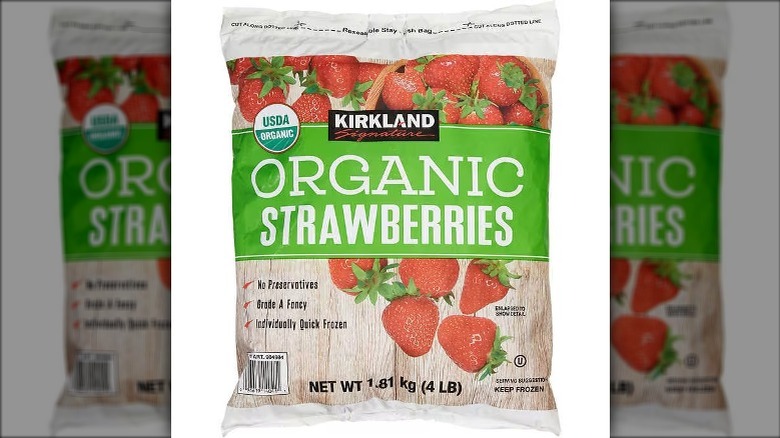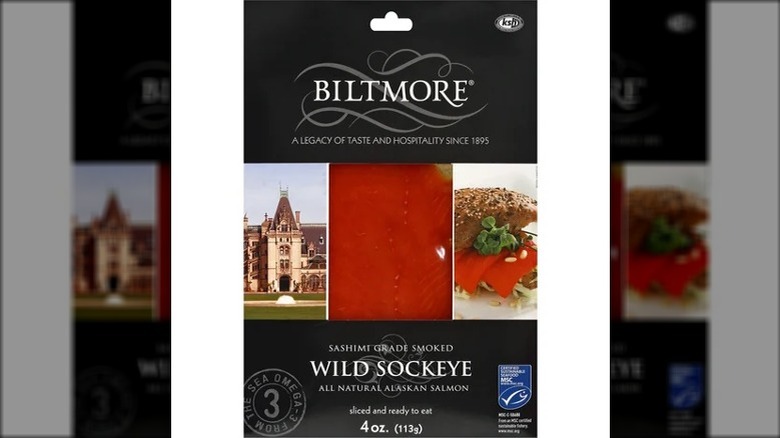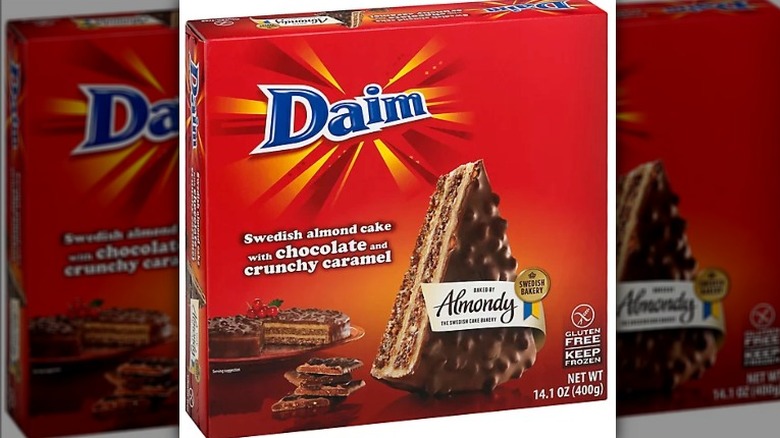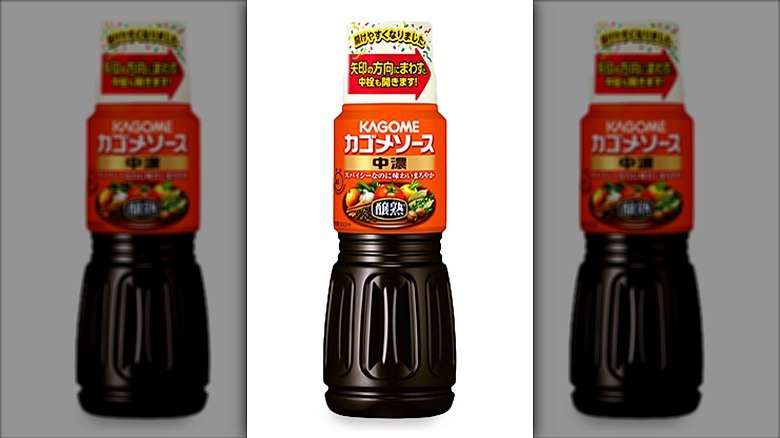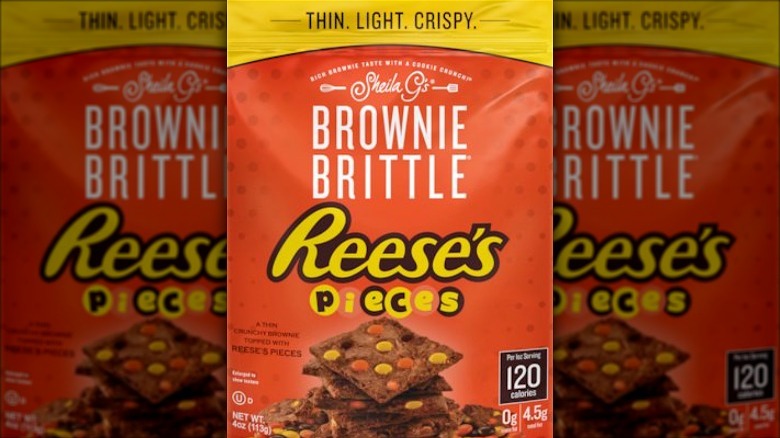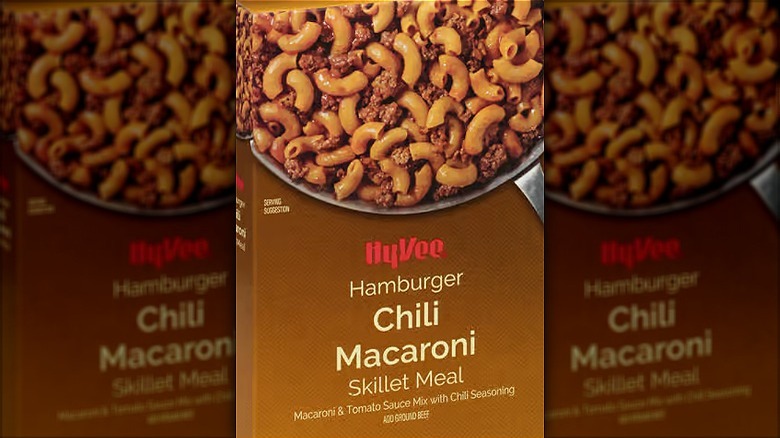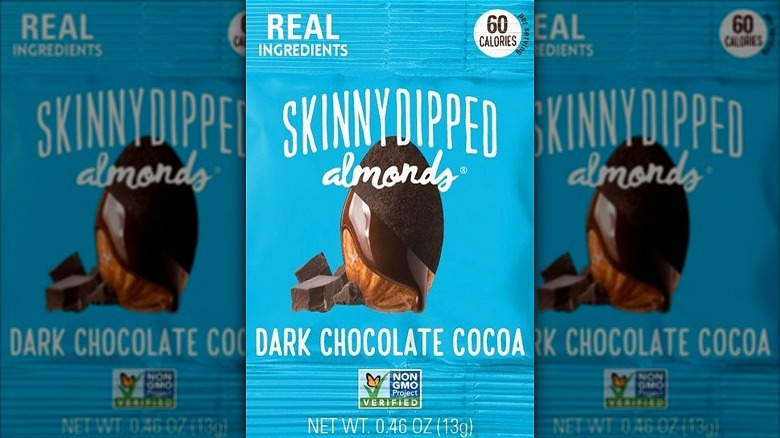13 Food Recalls We've Seen So Far In 2023
According to estimates by the Centers for Disease Control and Prevention, approximately 48 million people in the U.S. fall ill due to foodborne illnesses annually, representing about one in six Americans. Of these, 128,000 get hospitalized, and 3,000 die. Foodborne illnesses are divided into two categories: known foodborne pathogens, of which there are 31 that get regularly tracked, and unspecified agents, which are microbes, chemicals, and other substances that have not yet been identified and are therefore not tracked. Approximately 20% of foodborne illnesses occur via known pathogens, and 80% result from unspecified agents. The top five pathogens resulting in foodborne illnesses from highest to lowest include Norovirus, Salmonella, Clostridium perfringens, Campylobacter, and Staphylococcus aureus.
Foodborne illnesses most commonly occur due to poor food handling practices, risky farming operations, shoddy manufacturing or distribution, and in-store contamination, most of which are entirely preventable. The average onset of a foodborne illness can occur anywhere from within four hours to up to one week, with symptoms enduring between 24 hours and one week. These symptoms may include nausea, vomiting, diarrhea, abdominal cramping, and fever.
Once possible contamination is discovered, recalls are issued, and safety alerts go out to the general public. The following is a list of several such instances so far this year. The U.S. Food and Drug Administration offers a complete list of all recalls issued over the last three years on its Recalls, Market Withdrawals, & Safety Alerts page.
1. Enoki mushrooms
Enoki mushrooms are a frequent offender where foodborne illnesses are concerned. This year alone, three recalls have been issued for enoki mushrooms due to concerns over possible contamination with Listeria monocytogenes. Listeria is known to cause serious illness in children, elderly individuals, and those with compromised immune systems. It has also been linked with miscarriages and stillbirths in pregnant women. In two of the three cases, contamination was determined through routine random screening conducted on packages hailing from China and Taiwan.
Companies involved in the recalls included Xin Ao International Group Corp. of Linden, New Jersey, which had distributed the mushrooms to 99 Ranch supermarkets in Maryland, Utopia Foods Inc. of Glendale, New York, which had distributed the mushrooms to wholesalers in several states, and Jan Fruits Inc. of Vernon, California, which had distributed the mushrooms to markets across California and wholesalers doing business in California and Hawaii. In all cases, no illnesses were reported, but consumers who purchased the 200-gram packages of mushrooms were instructed to avoid eating them and to contact the companies for a full refund.
2. Alfalfa sprouts
While raw sprouts may be a fantastic crunchy addition to a sandwich, the CDC warns that they pose a high risk for contamination by Salmonella, E. Coli, and Listeria thanks to the hot, moist environment in which they grow. Earlier this year, Fullei Fresh issued a voluntary recall for their 4-ounce retail and 5-pound bulk stocks of alfalfa sprouts distributed throughout Florida due to discovering shiga toxin-producing E. Coli in them.
That strain of bacteria is not a part of regular testing mandated by the FDA's Produce Safety Rule Subpart M, which went into effect on January 26, 2016. This rule, a component of the FDA Food Safety Modernization Act, instituted scientifically determined basic safety protocols for the growth, harvest, packaging, and holding of fruits and vegetables intended for human consumption. This particular instance of E. Coli contamination was detected by the FDA in a random sample of the finished product. While no illnesses were reported, consumers were alerted to avoid eating any alfalfa from this lot.
3. Infant formula
Earlier this year, Reckitt and Perrigo Company plc. recalled batches of infant formula due to potential cross-contamination with products containing the bacteria Cronobacter sakazakii. According to the CDC, this bacteria naturally occurs in the environment, often inhabiting dry goods like infant formula, powdered milk, herbal teas, and starches that have been improperly stored or handled. Infants under 2 months of age, premature babies, and those that are immunocompromised are particularly susceptible to Cronobacter sakazakii infections, which can lead to sepsis and meningitis.
In both cases, none of the products, distributed throughout the U.S., Guam, and Puerto Rico, tested positive for the bacteria, but they were recalled as a precaution. Reckitt noted that after a comprehensive investigation, the source of the contamination got traced back to a third party, with which the company ceased all ties. No children became ill, and all consumers with batches impacted by the recall were instructed to return said products to their retailer for a full refund.
4. Canned shrimp
Kawasho Foods USA Inc. of New York City found itself voluntarily recalling 4-ounce cans of Geisha Medium Shrimp due to accounts of swollen, leaking, and burst cans, indicating signs of the bacteria Clostridium botulinum. Botulism is an anaerobic bacteria, which is a bacteria that grows best in environments devoid of oxygen, like cans that have been damaged or inappropriately sealed, per StateFoodSafety. This bacteria can cause severe neurological symptoms, including paralysis or weakness of the face, trouble swallowing or speaking, and blurry vision. It is a uniquely dangerous illness for infants, causing muscle debility and rendering eating or crying problematic.
While there were no illnesses reported in conjunction with this recall, cans distributed throughout California, Utah, Arizona, and Colorado for retail in several locations were red-flagged. All consumers were urged not to eat the damaged cans and to return the products to their retailer of origin for a complete refund.
5. Cocktail shrimp
In another shrimp-related recall, Lidl US, a grocery chain with 170 or so stores throughout the East Coast and Washington D.C., voluntarily recalled all 7-ounce containers of ready-to-eat Tapas-branded cocktail shrimp due to concerns over Listeria monocytogenes contamination. A research study published in the Annals of Microbiology found that approximately 7.6% of frozen shrimp samples analyzed tested positive for Listeria, indicating a substantial risk of foodborne illness for improperly handled shrimp. Shrimp are also common culprits for seafood poisoning from toxins like scombroid and ciguatera (via the Centers for Disease Control and Prevention).
This recall didn't come about due to reports of consumer illnesses. It was discovered by Lidl while conducting routine quality and safety testing on their products. All products were subsequently removed from store shelves. Customers were instructed to avoid eating the products and to return them to a Lidl store for a full refund. No other Tapas-branded products were involved in this recall.
6. Strawberry granola and yogurt parfait bars
The voluntary recall of 581 cases of Strawberry Granola & Greek Yogurt Parfait bars by Clio Snacks of Piscataway, New Jersey, reflects the challenges of supply chain issues, particularly where food safety is concerned. These snack bars are produced by a third-party manufacturer and distributed by Clio to retailers like Walmart, where all these products ended up. While the third-party manufacturer detected the presence of Listeria monocytogenes in routine testing, the source of contamination has yet to be determined as of this writing, requiring the facility to halt all operations until a complete investigation can be conducted to resolve the issue.
Companies like Clio rely upon third-party manufacturers for many of their products, creating a situation where checks and balances are required, not to mention some self-policing to prevent an outbreak. In this case, nobody fell ill, and all products were immediately removed from store shelves. All consumers who have purchased said snack bars should avoid eating them and either destroy or return them to their local Walmart retailer for a complete refund.
7. Frozen organic strawberries
A nationwide recall was initiated involving frozen organic strawberries sold by Scenic Fruit Company of Gresham, Oregon, due to concerns over the presence of Hepatitis A on the fruit. Hepatitis A is a liver disease that can get transferred via person-to-person or person-to-food contact, per the CDC. The illness typically appears within 15 to 50 days of exposure and is especially dangerous to those with pre-existing conditions or who are immunocompromised. It can cause symptoms including fatigue, abdominal pain, jaundice, liver dysfunction, dark urine, and pale stool and may ultimately result in liver failure. Vaccines are effective in treatment if administered within two weeks of exposure to the disease.
Retailers affected by this outbreak include Costco, Aldi, KeHE, Vital Choice Seafood, PCC Community Markets, and Trader Joe's, which had to pull its Organic Tropical Fruit Blend from shelves. Brands impacted by the recall include Simply Nature, Vital Choice, Kirkland Signature, Made With, PCC Community Markets, and Trader Joe's. Production has halted while a thorough investigation is conducted to determine the source of the issue. Consumers who have purchased these products should avoid eating them and return them to the retailer for a complete refund.
8. Smoked salmon
Recently, 295 cases of Biltmore Smoked Wild Sockeye Salmon distributed by Seven Seas International USA, LLC of St. Petersburg, Florida, were voluntarily recalled due to concerns over Listeria monocytogenes contamination. These cases of salmon were sold through the Publix supermarket chain. While no illnesses have been reported in conjunction with consuming this product, regular monitoring by the Florida Department of Agriculture and Consumer Services has revealed the contamination. No other items distributed by Seven Seas International USA, LLC are involved in this recall. Consumers should refrain from eating these packages and return them for a complete refund.
Prior outbreaks involving the contamination of smoked salmon with Listeria monocytogenes have been reported, begging the question: Why is smoked salmon so prone to this form of contamination? It was noted that when salmon is cold-smoked, there is no way to destroy any bacteria present in the salmon. When salmon is hot-smoked, however, the heat and lack of moisture are generally effective at killing bacteria. This fact does not prevent the food from becoming contaminated after smoking and before packaging, although thoroughly cooking the salmon can reduce the risk of getting sick, according to The Sydney Morning Herald.
9. Foreign objects
Foreign objects in food are more common than one would hope. Approximately 1,500 Americans annually die from complications related to ingesting foreign objects. The objects most commonly found in food products include glass, metal, plastic, wood, and stones, according to Food Safety Magazine. Primary culprits include pastries, soft drinks, vegetables, infant food, fruit, cereal, fish, chocolate, and cocoa powder. According to the FDA, a prepared food item is unsafe if it contains an object between 7 and 25 millimeters in length that cannot get neutralized in any capacity before being eaten. Experts concede that items smaller than this can be dangerous for infants and older individuals.
One recent example of this type of contamination involved Almondy Chocolate cake with Daim, which is exclusively sold at IKEA stores. These cakes were recalled due to a metal object being found in a cake. The recall notice did not indicate that anyone ingested metal, and all products were removed from IKEA stores to prevent possible ingestion. Consumers should refrain from eating the cake and return it to IKEA for a full refund.
10. Undeclared soy allergens
According to the FDA, soy is the eighth most commonly occurring food allergen and typically affects anywhere from 0.1% to 0.6% of the population. The FDA requires that all of the top nine food allergens be indicated on the packaging of foods and beverages. When allergen labeling is inaccurate, it can adversely impact those relying upon these labels to keep themselves safe. Unfortunately, issues do occur where undisclosed ingredients end up in foods.
For this reason, recalls such as that involving North American Food Distributing Company Inc. of West Sacramento, California, are particularly concerning. This recall involves undisclosed soy or soy products in the company's Kagome Worcester Sauce and Kagome Chuno Sauce. These items were distributed to retailers throughout Northern California. While no illnesses or allergic reactions have been reported, consumers with soy allergies should avoid consuming these products and return them for a full refund.
11. Undeclared wheat allergens
Wheat is another of the top nine food allergens required by the FDA to be labeled per the Food Allergen Labeling and Consumer Protection Act of 2004 (FALCPA). Wheat allergies are complex, involving gluten intolerances, celiac disease, and wheat allergies unrelated to gluten. Approximately 0.4% of Americans have a medically diagnosed wheat allergy. While 6% of the population reports being gluten intolerant, only 1% is afflicted with celiac disease. For the latter, any wheat consumed can cause immediate debilitating symptoms ranging from gastrointestinal discomfort to inflammation and skin irritation.
The possible presence of wheat in a product labeled as gluten-free is a huge issue, which is why we included the recall of 4-ounce packages of Gluten Free Reese's Pieces Brownie Brittle distributed by Second Nature Brands of Madison Heights, Michigan. These treats were distributed to retailers nationwide. One instance of illness was reported before the date of the recall. The presence of wheat likely resulted from cross-contamination occurring at a facility run by a co-manufacturer. Cross-contamination is a common culprit behind the presence of allergens in products, highlighting the importance of cleanliness and proper safety protocols where the production of allergen-safe products is concerned. As with other recalls, consumers should avoid eating the items and return them for a full refund.
12. Undeclared milk allergens
When it comes to allergen labeling, "milk" refers to cow's milk, which is the most prevalent food allergy. Cow milk allergies are most common in infants and toddlers under age 3. Approximately 2-3% of these children will have a milk allergy, but about 90% will outgrow this allergy by 3 years old. Although milk allergies are relatively rare in adults, lactose intolerance is frequent, affecting about 36% of Americans. Lactose intolerance varies by ethnicity, with African Americans, Native Americans, Asian Americans, and Latinos being more susceptible. Those with lactose intolerance have difficulty digesting the eponymous sugar in milk, which can cause symptoms like bloating, gas, and diarrhea.
Because of the prevalence of milk in so many food products, labeling is crucial for those with milk allergies and intolerances, highlighting the necessity of accuracy in items like Hy-Vee's Hamburger Chili Macaroni Skillet Meal, which was recalled due to undeclared milk allergens. These items were sold through Hy-Vee retail stores and Dollar Fresh Market stores in Iowa, Illinois, Missouri, Kansas, Nebraska, South Dakota, Minnesota, and Wisconsin. The situation was brought to the attention of distributor Gilster-Mary Lee Corporation by an email from a consumer. While no illnesses have occurred, consumers with milk allergies or intolerances are encouraged to return the items to retailers for full reimbursement.
13. Undeclared peanut allergens
Peanut allergies affect approximately 4.6 million Americans, or almost 1.4% of the population. While symptoms are diverse and can range from mild to severe, there are enough terrifying stories about children experiencing life-threatening cases of anaphylaxis due to peanut exposure that this is an allergy we should take seriously. Products that appear to be peanut-free and are not marked as having peanuts as an allergen should be safe to consume. When corporations fail to disclose an allergen as potentially dangerous as peanuts, the ramifications can be lethal.
Several reports of cases involving undeclared peanut allergens have occurred this year, such as one involving SkinnyDipped Dark Chocolate Cocoa Almonds and SkinnyDipped Dark Chocolate Salted Caramel Cashews. The Seattle-based company notes that the contamination occurred from a supplier of its ingredients. While nobody has fallen ill, all items were removed from store shelves, and consumers were instructed not to eat them if they have peanut allergies. Refunds are available from the original location of purchase. No other SkinnyDipped products are a part of this particular recall.

